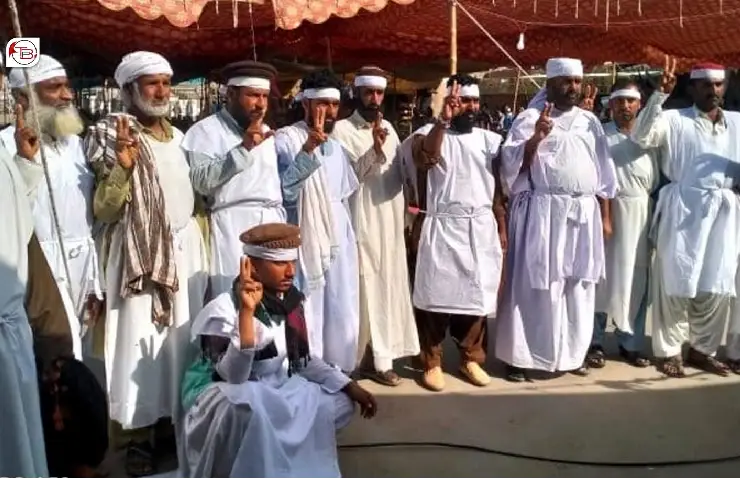Protests have broken out in the strategic port city of Gwadar against the China Pakistan Economic Corridor (CPEC)—a giant connectivity project that links Beijing with the Arabian Sea through Pakistan.
Local people are protesting against the wilting of livelihoods based on fishing, year-round shortage of water and electricity as well as restrictions to movement of people in Gwadar due to the Chinese project.
Gwadar: A massive rally was held in the port city today, where thousands shrouded in coffins walked to demand basic rights.
China has invested billions in Gwadar to develop the ports as part of OBOR, but locals claim there lives have worsened further due to security curbs. pic.twitter.com/9MMp0V1vLg
— The Balochistan Post – English (@TBPEnglish) November 18, 2021
Thousands of people have been participating in the protests which have been going on for a week. The protestors have blocked national highways, reports Pakistani newspaper The News.
The local civil society has joined hands under the banner of 'Give rights to Gwadar' to protest against the Chinese and Pakistani policies. Protestors include fishermen, local people as well as political parties.
The man leading the ‘Give rights to Gwadar’ rally, Maulana Hidayat ur Rehman said the government has failed to resolve basic issues like water and power for long, therefore they plan to continue with the agitation.
Explaining the role of both Pakistan and China, Geopolitical analyst Mark Kinra says: "Gwadar has become a hot bed for protests and this will increase further. Unlike what President Xi stated at a recent symposium on the BRI about people-to-people connectivity and people-centred progress, CPEC has become the opposite with government-to-government connectivity and progress limited to a few individuals or companies only".
He adds that Pakistan is behaving like an autocratic ruler, with no responsibilities towards the people of Balochistan. "Islamabad is even unable to provide basic necessities such as water, electricity while China is the new East India Company squeezing on people’s livelihoods, restricting their lives with security curbs and looting out the natural resources", says Kinra.
China and Pakistan are together investing in the massive $62 billion CPEC that envisages the construction of infrastructure projects ranging from roads and rail networks to power plants. The CPEC projects start from Kashgar in the controversial Xinjiang province of China, and runs across the length of Pakistan to its south-western Baloch port of Gwadar.
The local Baloch people are protesting because China has placed restrictions on the movement of people and has curbed fishing in the Arabian Sea. China has also taken away land on the coast from the local fishermen for building the multi-purpose Gwadar port whose aim is to facilitate commerce as well as naval activities.
Also, commercial Chinese trawlers have taken over almost the entire Pakistani coast in the Arabian Sea for fishing, edging out the small-scale fishing done by the local people. The Baloch also say that large fishing trawlers from Karachi too have taken away their fish.
Separately, Baloch students have been holding protests in Balochistan capital Quetta over enforced disappearances and kidnappings of students by Pakistani authorities. The latest incidents of kidnapping of students happened in early November.
Quetta: Students of Balochistan university continue to protest against disappearance of two Baloch students Sohail Baloch and Faseeh Baloch. The university remained shut for today too. pic.twitter.com/CvnGZzNBtI
— The Balochistan Post – English (@TBPEnglish) November 11, 2021
The CPEC and the economic exploitation of the Baloch people has alienated them further from the Pakistani government. The demand for a separate nation has taken a violent turn with regular attacks on Pakistani troops as well as Chinese nationals.
Under China's bidding, Pakistan has deployed more forces and unleashed violence on the Baloch to quell rising Baloch nationalism. The attacks on Chinese nationals and the delay in the CPEC projects has caused friction among Islamabad and Beijing.




















